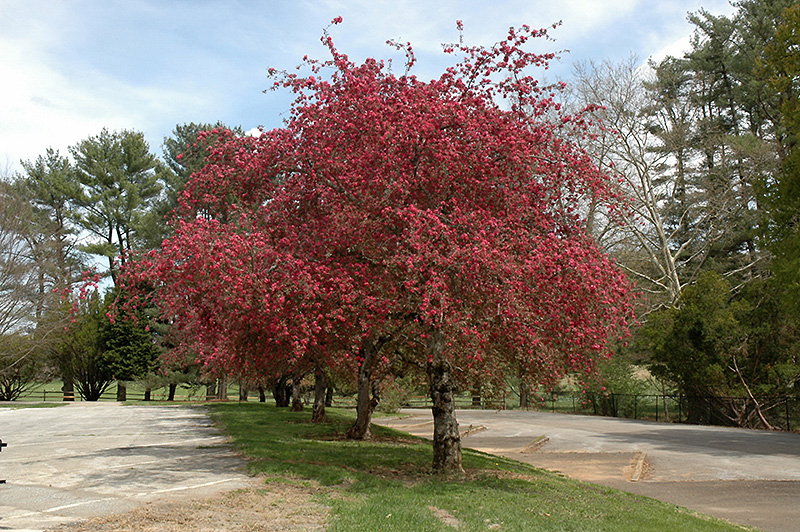Menu


Purple Flowering Crab in bloom
Purple Flowering Crab in bloom
(Photo courtesy of NetPS Plant Finder)
Height: 20 feet
Spread: 20 feet
Sunlight:
![]()
Hardiness Zone: 4a
Other Names: Purple-leaf Crab, Roseybloom, Crabapple
Description:
A captivating variety, smothered in fragrant rose pink flowers in spring followed by purplish-red fruit in fall; emerging purple-red leaves mature to green with a purple blush; needs well-drained soil and full sun; makes a great landscape accent
Ornamental Features
Purple Flowering Crab is covered in stunning clusters of fragrant rose flowers along the branches in mid spring, which emerge from distinctive red flower buds before the leaves. The fruits are showy red pomes carried in abundance from early to mid fall. It has dark green deciduous foliage which emerges plum purple in spring. The glossy oval leaves turn yellow in fall. The smooth brown bark adds an interesting dimension to the landscape.
Landscape Attributes
Purple Flowering Crab is a dense deciduous tree with a strong central leader and a more or less rounded form. Its relatively fine texture sets it apart from other landscape plants with less refined foliage.
This tree will require occasional maintenance and upkeep, and is best pruned in late winter once the threat of extreme cold has passed. Gardeners should be aware of the following characteristic(s) that may warrant special consideration;
Purple Flowering Crab is recommended for the following landscape applications;
Planting & Growing
Purple Flowering Crab will grow to be about 20 feet tall at maturity, with a spread of 20 feet. It has a low canopy with a typical clearance of 1 foot from the ground, and is suitable for planting under power lines. It grows at a slow rate, and under ideal conditions can be expected to live for 40 years or more.
This tree should only be grown in full sunlight. It prefers to grow in average to moist conditions, and shouldn't be allowed to dry out. It is not particular as to soil type or pH. It is highly tolerant of urban pollution and will even thrive in inner city environments. This species is not originally from North America.
A NetPS Plant Finder tool
